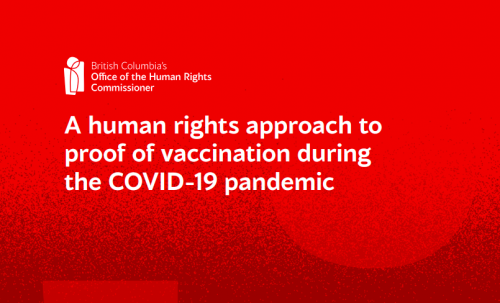
The following piece comes from a “guidance document” that the BC Office of the Human Rights Commissioner recently published. In short, people CAN lose their jobs or livelihood.
To be clear, the Government won’t mandate this for B.C. That being said, employers will have wide discretion to require it, if they deem it “essential”. Is enabling all that much better?
Their media representative, Elaine (her last name has been scrubbed) was evasive, and tap danced around important information. This included: (a) vaccines not being approved, but having interim authorization; (b) how experimental vaccines can be pushed given BC cancelled its state of emergency; (c) the lack of long term testing; and (d) indemnified manufacturers, among other things
In short, the BCOHRC seems more content with the “illusion” of protecting human rights, rather than “actually” protecting human rights.
If Elaine, or her employer, cared about so-called marginalized people, they wouldn’t allow for experimental injections to be a condition of certain jobs. Despite all the social justice nonsense on their website, it’s clear that it’s all just for show.
From page 3:
Policies that treat people differently based on whether they have been vaccinated—“vaccination status policies”—must remain consistent with the obligations legislated under B.C.’s Human Rights Code. Individuals must be protected from discrimination based on their place of origin, religion, physical or mental disability, family status or other Code-protected ground.
Employers, landlords and service providers (duty bearers) can, in some limited circumstances, implement vaccination status policies—but only if other less intrusive means of preventing COVID-19 transmission are inadequate for the setting and if due consideration is given to the human rights of everyone involved.
Vaccination status policies should be justified by scientific evidence relevant to the specific context, time-limited and regularly reviewed, proportional to the risks they seek to address, necessary due to a lack of less-intrusive alternatives and respectful of privacy to the extent required by law. In applying such a vaccination
status policy, duty bearers must accommodate those who cannot receive a vaccine to the point of undue hardship.
No one’s safety should be put at risk because of others’ personal choices not to receive a vaccine. Just as importantly, no one should experience harassment or unjustifiable discrimination when there are effective alternatives to vaccination status policies.
People must be protected based on certain identity groups. But humans as a whole aren’t worth consideration. Now, from page 6:
Evidence-based — Evidence (of the risk of transmission in the specific setting) is required to justify policies that restrict individual rights for the purpose of protecting collective public health or workplace safety. Such policies must be aligned with up-to date public health recommendations and reflect current medical and epidemiological understanding of the specific risks the policy aims to address.
But once again, these are not approved, and there is no long term testing. From page 7:
The COVID-19 vaccines approved by Health Canada have proven highly effective at protecting individuals from COVID-19 infection and serious illness.
Except they aren’t approved. From page 8:
Migrant and undocumented workers, many of whom do not have a Personal Health Number, may be unaware they are eligible for the vaccine or concerned about revealing their immigration status.
Interesting the concern for “undocumented workers”, which is a euphemism for illegal aliens. The BCOHRC cares more about people illegally in the country than legitimate safety concerns of their guidelines. From page 10:
In my view, a person who chooses not to get vaccinated as a matter of personal preference—especially where that choice is based on misinformation or misunderstandings of scientific information—does not have grounds for a human rights complaint against a duty bearer implementing a vaccination status policy.
It would be nice to know what “misinformation or misunderstandings” would apply here. And in fact, that question was posed to Elaine. But as stated, the BCOHRC seems more concerned about appearing to care about human rights, than actually caring about human rights. Continuing from page 11:
Conclusion
It is in challenging times that it is most critical to place human rights at the centre of our decision making. No one’s safety should be put at risk because of other people’s personal choices not to receive a vaccine, and no one should experience harassment or unjustified discrimination when there are effective alternatives to vaccination
status policies.
We must all guard against the impulse to react out of fear, speculation and stereotyping. Restrictions imposed in the name of safety must be justified based on the most current public health recommendations reflecting the best available medical and scientific evidence, relevant to a specific setting.
While these paragraphs sound great, the BCOHRC is more concerned about optics and pretending to care about human rights.
Though this document doesn’t officially call for mandatory injections, it’s intended to provide instructions on how employers can get around it.
When specifically asked about approved v.s. authorized injections, Elaine pivots by claiming it’s not the place of the BCOHRC to provide medical advice. If she was being straightforward, this issue would have been addressed directly.
And no, this isn’t just some academic musings. Elaine made it clear that the BCOHRC intended for this document to be used as a guideline throughout B.C.
(1) https://bchumanrights.ca/wp-content/uploads/BCOHRC_Jul2021_Vaccination-Policy-Guidance_FINAL.pdf
(2) BCOHRC_Jul2021_Vaccination-Policy-Guidance_FINAL
(3) Section 30.1, Canada Food & Drug Act
(4) Interim (Emergency) Order Signed By Patty Hajdu
(5) https://covid-vaccine.canada.ca/info/pdf/astrazeneca-covid-19-vaccine-pm-en.pdf
(6) https://covid-vaccine.canada.ca/info/pdf/janssen-covid-19-vaccine-pm-en.pdf
(7) https://covid-vaccine.canada.ca/info/pdf/covid-19-vaccine-moderna-pm-en.pdf
(8) https://covid-vaccine.canada.ca/info/pdf/pfizer-biontech-covid-19-vaccine-pm1-en.pdf
In case anyone thinks this may be unfair, here is the entire email exchange, going back to last week. Does it sound like a person giving straightforward answers?
From: Ronnie Lempert editor@canucklaw.ca
Sent: July 14, 2021 1:51 PM
To: XXXXXXXX, Elaine OHRC:EX Elaine.XXXXXXXX@bchumanrights.ca
Subject: media request for information on document
Hello,
I run a small site in BC and came across this
https://bchumanrights.ca/wp-content/uploads/BCOHRC_Jul2021_Vaccination-Policy-Guidance_FINAL.pdf
There are some questions about its implementation, as it would impact readers.
Any chance of getting in touch?
Thanks,
Ronnie (Editor)
XXX-XXX-XXXX
From: “XXXXXXXX Elaine OHRC:EX” Elaine.XXXXXXXX@bchumanrights.ca
Sent: Wednesday, July 14, 2021 2:09 PM
To: “editor@canucklaw.ca” editor@canucklaw.ca
Subject: RE: media request for information on document
Hello Ronnie,
Thank you for reaching out to us.
The Commissioner is not doing media on this release, and of course implementation and roll out decisions are going to come from government and other agencies, not BCOHRC
However, if you have specific questions about the guidance that fall within our jurisdiction, if you send them to me via email, I will check and see if there is any more information we have to provide to you.
Thank you,
Elaine
Elaine XXXXXXX (she/her)
XXXXXXXXXXXXXXX, Communications
BC’s Office of the Human Rights Commissioner
Office: 1-844-922-XXXX | Cell: 1-250-216-XXXX
bchumanrights.ca | @humanrights4bc
From: Ronnie Lempert editor@canucklaw.ca
Sent: July 14, 2021 2:33 PM
To: XXXXXXXX, Elaine OHRC:EX Elaine.XXXXXXXX@bchumanrights.ca
Subject: RE: media request for information on document
Hello Elaine
I’d hoped to ask in person, but here are the important parts.
(1) The Government takes its advice from the BCOHRC, does it not? So wouldn’t your reports and recommendations be considered, at a minimum?
(2) This document says on the top of page 10:
In my view, a person who chooses not to get vaccinated as a matter of personal preference—especially where that choice is based on misinformation or misunderstandings of scientific information—does not have grounds for a human rights complaint against a duty bearer implementing a vaccination status policy.
Okay, specifically, what would be a misunderstanding or what would count as misinformation?
(3) Middle of page 7, it’s stated that the vaccines are “approved by Health Canada”. However, when looking up the product inserts, they don’t say approved anywhere. They say “authorized under an interim order”.
https://covid-vaccine.canada.ca/info/pdf/astrazeneca-covid-19-vaccine-pm-en.pdf
https://covid-vaccine.canada.ca/info/pdf/janssen-covid-19-vaccine-pm-en.pdf
https://covid-vaccine.canada.ca/info/pdf/covid-19-vaccine-moderna-pm-en.pdf
https://covid-vaccine.canada.ca/info/pdf/pfizer-biontech-covid-19-vaccine-pm1-en.pdf
So, are these vaccines approved, or are they given interim authorization? They are not the same thing.
(4) Considering that testing has gone on for about a year, how can the BCOHRC say with any confidence if and what any side effects would be in 5 or 10 years?
(5) Are the manufacturers indemnified against lawsuits from any injury?
(6) Will the BCOHRC assume any responsibility/liability if this policy were implemented for any injuries/deaths?
(7) What cost/benefit analysis was done in coming to the decision that mandatory vaccines may be required? Could I have a copy of those studies?
(8) Has the extensive legal history, particularly with Pfizer, been any sort of deterrent in coming to this kind of decision?
(9) Does imposing this vaccination requirement result in a backdoor vaccine passport?
(10) Considering BC ended its state of emergency June 30, what is the legal basis for allowing the requirement of these vaccines?
(11) If my boss fired me for refusing a vaccine based on the above questions, what would the BCOHRC do? Would you determine that the employer has a right to demand them? Would you determine that I am uninformed?
I realize this is a lot, but that document is a cause for concern.
Thanks,
Ronnie
From: “XXXXXXXX, Elaine OHRC:EX” Elaine.XXXXXXXX@bchumanrights.ca
Sent: Wednesday, July 14, 2021 3:14 PM
To: “editor@canucklaw.ca” editor@canucklaw.ca
Subject: RE: media request for information on document
Hi Ronnie,
That’s a long list. I will see if I can help clarify where possible.
I am sure you understand several of these questions are out of scope.
It’s nearing end of day. Would you let me know of your deadline please?
Thank you,
Elaine
From: Ronnie Lempert editor@canucklaw.ca
Sent: July 14, 2021 4:06 PM
To: XXXXXXXX, Elaine OHRC:EX Elaine.XXXXXXXX@bchumanrights.ca
Subject: RE: media request for information on document
Hello Elaine,
There isn’t a specific deadline, but whenever they can be done.
If there is someone in a different department or division who might have insight on some of them, they are welcome to add it in as well.
I realize this is a lot, but the kind of audience I write for doesn’t like the idea that their livelihoods could be conditional on taking this, for the issues outlined below
Thanks,
Ronnie
P.S. you are always welcome to visit the site if any of the content interests you.
https://canucklaw(dot)ca
From: “XXXXXXXX, Elaine OHRC:EX” Elaine.XXXXXXXX@bchumanrights.ca
Sent: Thursday, July 15, 2021 2:14 PM
To: “editor@canucklaw.ca” editor@canucklaw.ca
Subject: RE: media request for information on document
Hi Ronnie,
I am able to get back to you today with clarifications from our Office.
This document is intended to provide guidance to duty bearers under B.C.’s Human Rights Code, including employers, housing providers, service providers, and government insofar as government plays each of these roles. Our hope is that duty bearers will consider – and follow – our recommendations.
You will note that this guidance does not contain a recommendation that government put into place a mandatory vaccine requirement, but it does allow for proof-of-vaccine requirements in some circumstances.
Our legislative mandate empowers us to provide public guidance and recommendations on matters of public policy by clarifying existing human rights laws and advising how new laws and public policy must be adapted to adhere to them. You can read the provisions of B.C.’s Human Rights Code here.
It is not within our mandate to provide medical advice. We rely on public health guidance issued by the Office of the Provincial Health Officer and the BC Centres for Disease Control, and invite you to refer to their work.
It is also not within our mandate to address individual human rights complaints. All human rights complaints in the province – including those made concerning COVID-19 accommodations such as masking and vaccination – are managed by a separate entity, the BC Human Rights Tribunal. You can read more about the purpose and function of the BC Human Rights Tribunal here.
Thank you,
Elaine
From: Ronnie Lempert editor@canucklaw.ca
Sent: July 15, 2021 3:08 PM
To: XXXXXXXX, Elaine OHRC:EX Elaine.XXXXXXXX@bchumanrights.ca
Subject: RE: media request for information on document
Hello Elaine,
If you hope that your recommendations will be followed, then what’s wrong with getting clarification from your office? I’m trying to determine exactly what you are calling for.
As just one example, these vaccines have interim authorization under an emergency order, (an emergency now cancelled in BC). See attached screenshots. On page 7 of the document they are referred to as “approved”, which distorts the truth. Does this concern you?
On page 10 of the document, it’s stated that people who refuse to get it for person reasons will not be protected. It also states that misinformation or misunderstandings are not an excuse. It’s a valid question to ask what qualifies as “misinformation”.
Also, does pointing out the lack of long term testing, or manufacturer indemnification count as misinformation?
To be blunt, it appears that the BCOHRC is empowering employers and others to force/coerce people into taking it, while glossing over the experimental status of these vaccines.
A human rights approach to proof of vaccination during the COVID-19 pandemic (bchumanrights.ca)
Hopefully I’m wrong,
Thanks,
Ronnie
From: XXXXXXXX, Elaine OHRC:EX” Elaine.XXXXXXXX@bchumanrights.ca
Sent: Monday, July 19, 2021 5:07 PM
To: “editor@canucklaw.ca” editor@canucklaw.ca
Subject: RE: media request for information on document
Hello Ronnie,
As discussed last week, here is additional clarification from our Office.
To clarify, our Office focuses on promoting and protecting human rights through education, research, advocacy, monitoring and public inquiry into issues of systemic discrimination in the province. Our legislative mandate is specifically focused on systemic discrimination, and therefore we are not able to comment on individual cases nor can we provide legal advice.
The vaccination status guidance offers general advice on how duty bearers can respect human rights if developing vaccination status policies — that is, policies that treat people differently based on whether or not they have been vaccinated against COVID-19.
B.C.’s Human Rights Commissioner Kasari Govender and our Office have not advocated for mandatory vaccination.
The purpose of the guidance document is to provide a human rights based lens to the development of vaccination status policies. It offers general advice on how duty bearers should respect human rights law when developing policies that treat people differently based on whether or not they have been vaccinated against COVID-19. The document follows current health guidance from the PHO and BCCDC, as well as sources cited in the guidance document and footnotes.
It is the position of BCOHRC that human rights law provides that duty bearers (such as employers) can implement vaccination status policies, only if less intrusive means of preventing transmission are not possible and with accommodations in place, as per the guidance. Vaccination status policies must remain consistent with the obligations legislated under B.C.’s Human Rights Code.
I hope this clarifies for you. We don’t have anything to add that isn’t already in the guidance, so suggest if you are looking for more specific details on potential future scenarios or the legal parameters of instituting proof of vaccination policies (these are still evolving as this is such a new issue across the board), that you seek context from a lawyer experienced in human rights, privacy and workplace law.
Thank you,
Elaine
From: Ronnie Lempert editor@canucklaw.ca
Sent: July 19, 2021 6:59 PM
To: XXXXXXXX, Elaine OHRC:EX Elaine.XXXXXXXX@bchumanrights.ca
Subject: RE: media request for information on document
Hello Elaine,
My biggest concern — one which is getting sidestepped here, it that you are laying out guidelines for EXPERIMENTAL and UNAPPROVED vaccines (interim authorization is not approved), and never make it clear that that this is the case. In short, the recommendations are based on misleading, or at best, incomplete information.
Saying “we don’t provide legal advice” is a bit of a cop out, since policies will likely be drafted based on the recommendations your office makes.
For the record, is it BCOHRC’s position that these are fully approved? Or just authorized for emergency use?
On a semi-related note: I’m curious what studies or cost/benefit analysis has been done, either for this, or for you recommendations on masks. Anything that debated or considered physical or psychological harms? Do you have anything you could share? Alternatively, is there anything publicly posted that you relied on? I’d like to see specifically what science has been relied on.
Thanks.
Ronnie
Hi Ronnie,
You can read all of our current and past COVID-19 guidance, including footnotes and references here: https://bchumanrights.ca/key-issues/covid-19/
You can read Health Canada information about vaccines here: https://www.canada.ca/en/health-canada/services/drugs-health-products/covid19-industry/drugs-vaccines-treatments/vaccines.html
We have nothing further to add or say that has not already been published.
Thank you,
Elaine
An astute person will realize that not once did she address the issue of these “vaccines” being authorized under a (now cancelled) emergency order, and not approved.
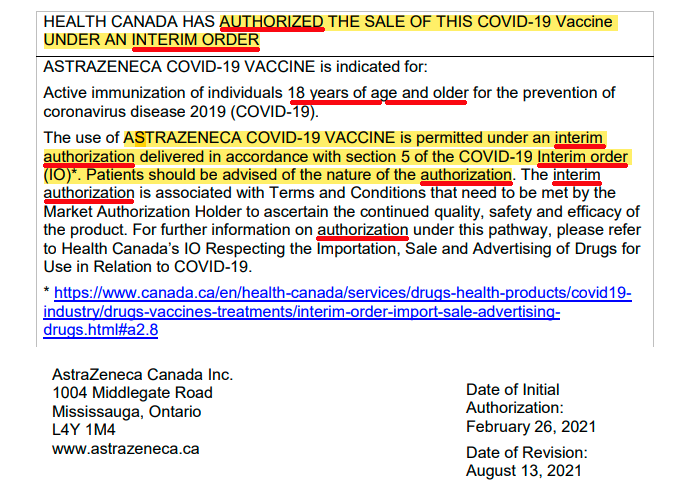
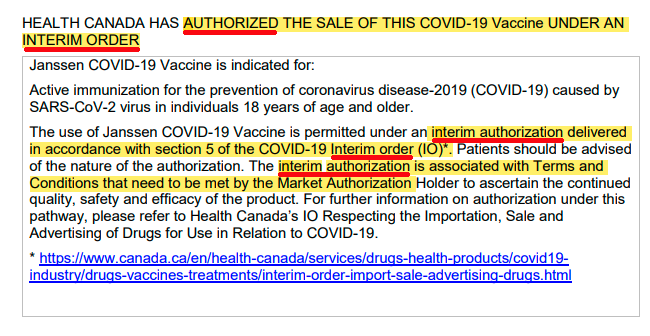
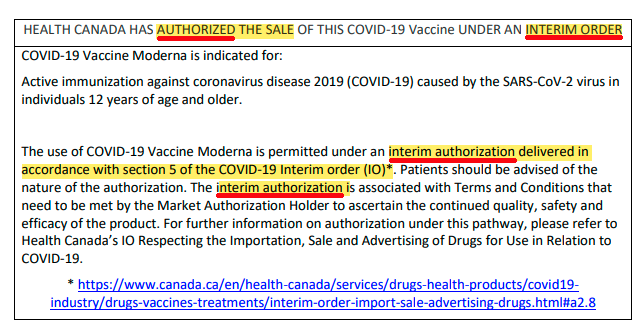
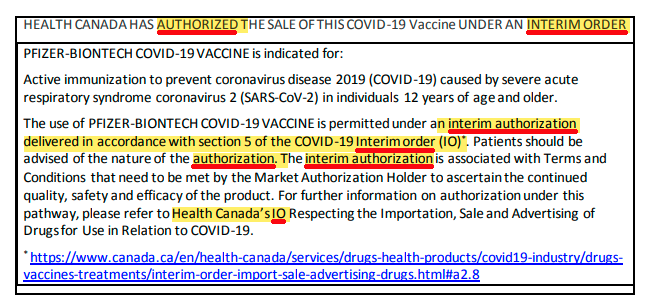

As long as human rights align with what powerful special interests, and high medical bodies like the (terrorist, corrupt) WHO, recommend, then there’s no problem. Not.
Wow! It’s time for this cruel, perverted system of things to go. And that’s so, not just because I personally think so. Thankfully, The end of this sick system is upon us according to God’s timetable. Bye, bye Elaine.